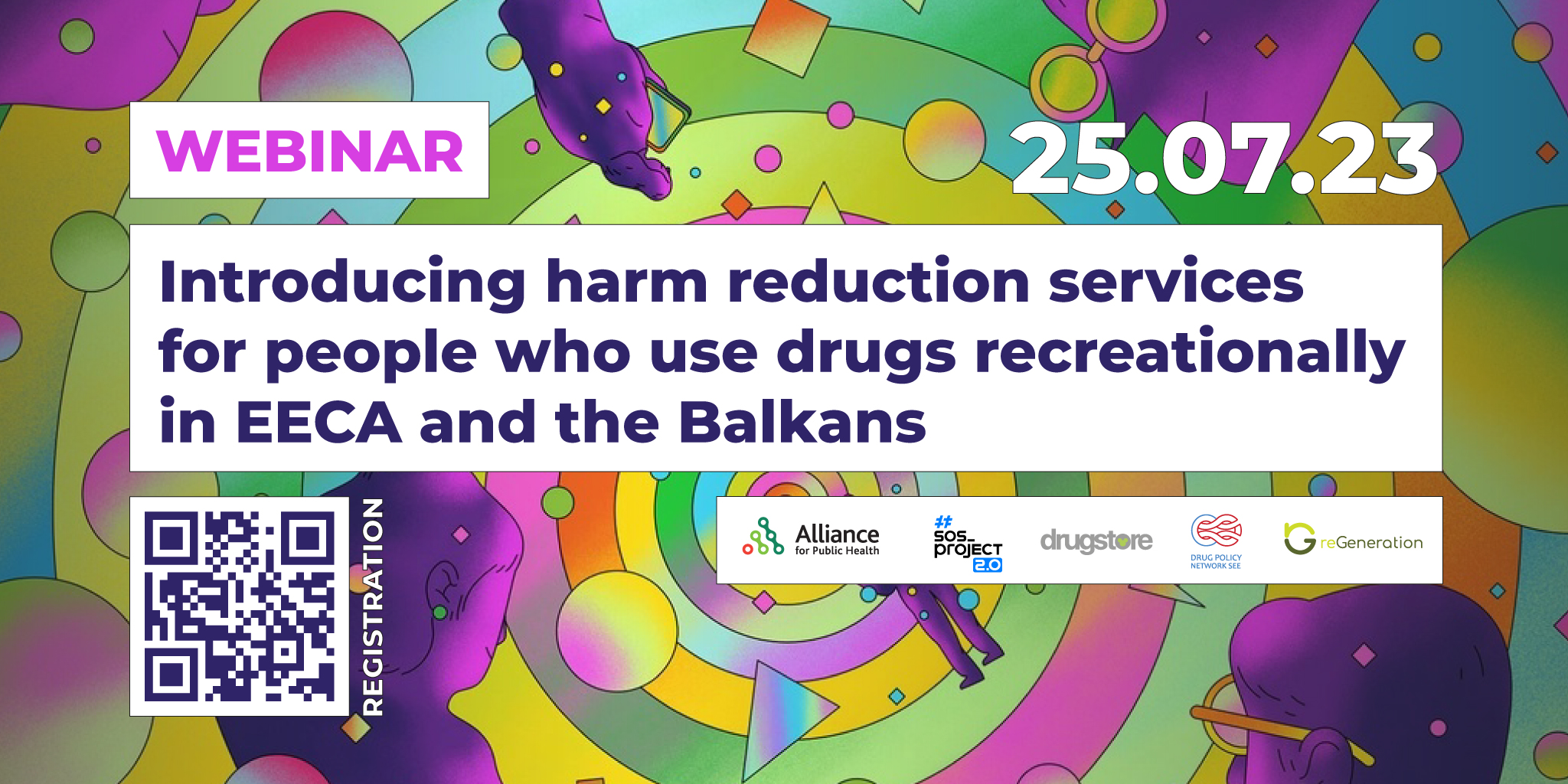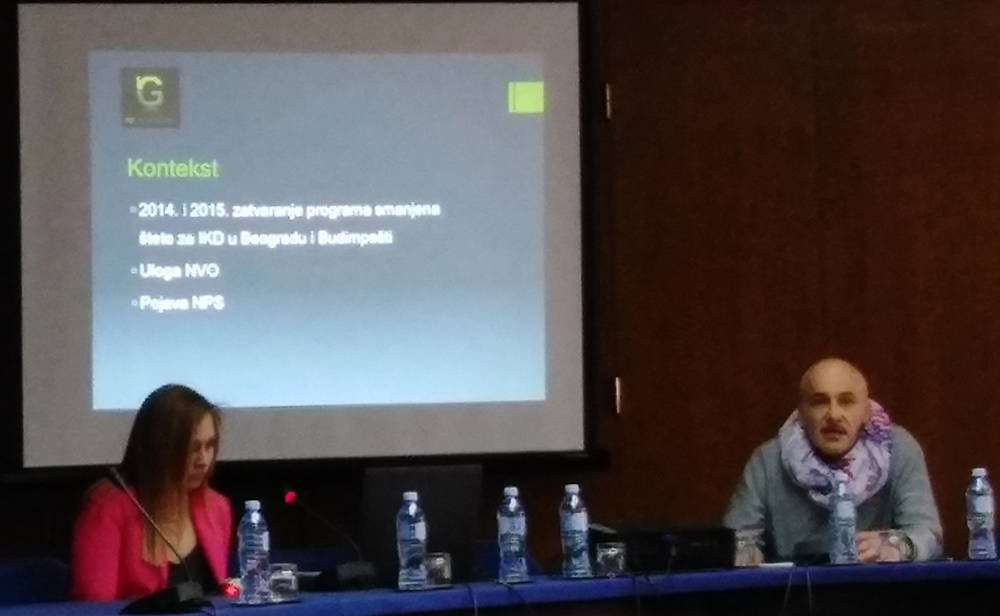The Alliance for Public Health organises webinar “Introducing harm reduction services for people who use drugs recreationally in EECA and the Balkans”, with the support from ReGeneration and DPNSEE.
Recreational drug use is on the rise, but at the same time young people who engage in it are not properly targeted by harm reduction services and don’t receive the necessary support, information and commodities they need to prevent them from turning to problematic use and all the relevant consequences.
On this webinar international experience on planning and implementing harm reduction programs specifically for this target population will be shared. Also, the draft guide that on this topic will be presented.
The Agenda includes topics:
- Introducing the key principles and the justification behind the need to advocate for, develop and offer HR services for people who use recreationally.
- Promoting Safety, Health, and Well-being: The need for Systematic implementation of Harm Reduction Strategies in Southeastern European Festivals.
- Ukrainian experience on harm reduction services for people who use drugs recreationally.
- #SafeParty – good practice example of multi-sectoral approach in nightlife harm reduction and recreation settings.
- Q&A and Discussion.
This webinar will be useful for program managers, advocates, policy makers and communities from across the region to help them inform their decisions and actions.
The webinar will be held via Zoom platform on Tuesday 25 July, from 11:00 to 12:30 CET. Translations will be available in English, Russian, BHCS and Albanian.
Please register to participate following this link>>>.





